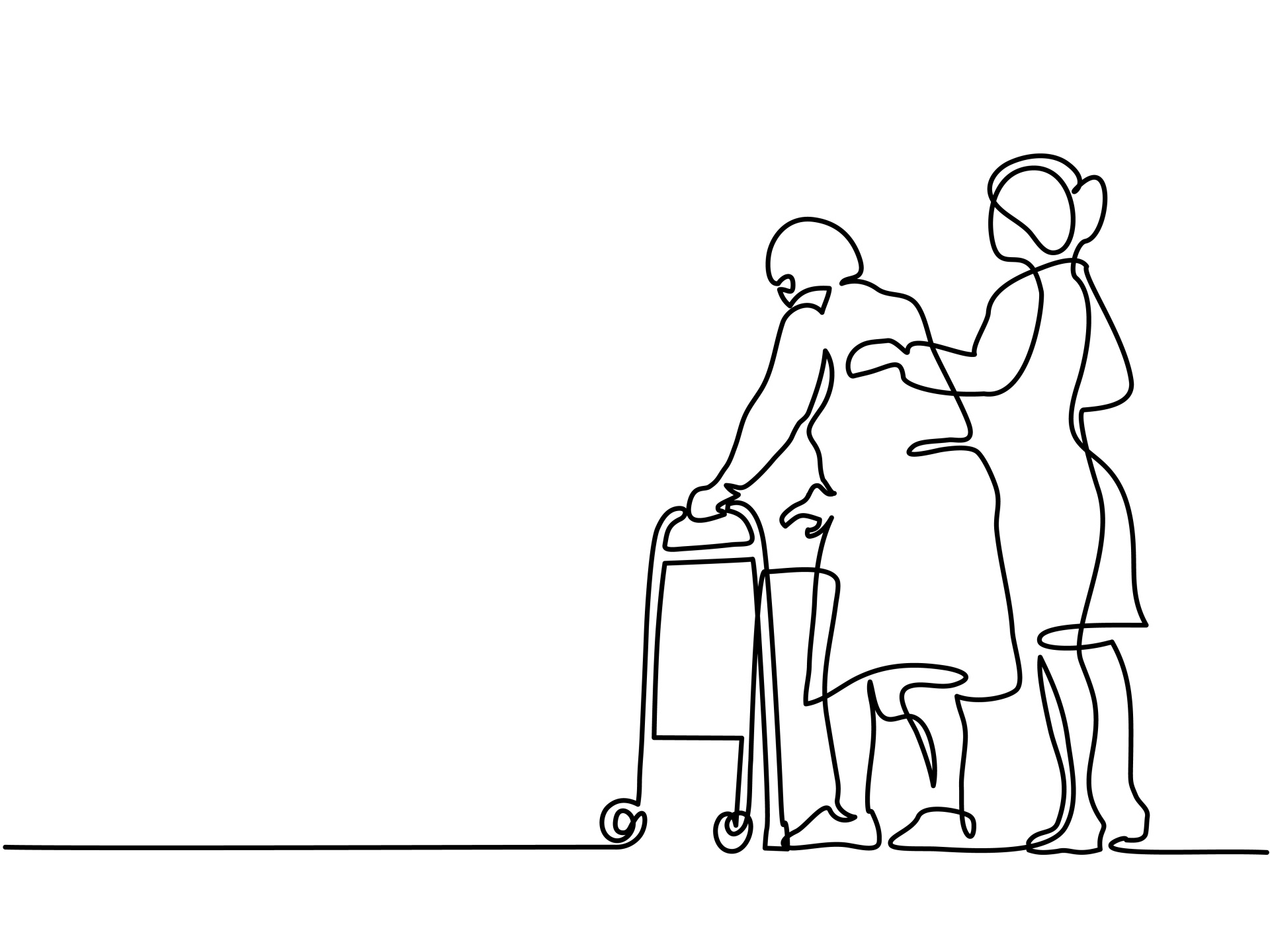Forum 4
Clinical Spiritual Care:The Role and Training of Caregivers
Hui-Ru Liang, Hospice and Palliative Care registered professional nurse and PhD candidate, Lancaster University, UK
Professor Ying-Wei Wang once stated, "Every member of the healthcare team has the responsibility to provide different levels of spiritual care to patients." This time, Hui-Ru Liang, in her role as a caregiver, shares insights into the role and training of caregivers in spiritual care.
 Florence Nightingale emphasized, "The nurse must use her brain, heart, and hands to create healing environments to care for the patient's body, mind, and spirit." According to Hui-Ru Liang, caregivers are tasked with providing holistic and whole-person care to patients, naturally encompassing spiritual care.
Florence Nightingale emphasized, "The nurse must use her brain, heart, and hands to create healing environments to care for the patient's body, mind, and spirit." According to Hui-Ru Liang, caregivers are tasked with providing holistic and whole-person care to patients, naturally encompassing spiritual care.
Hui-Ru Liang delved into exploring the distinctions between the role of a caregiver and other healthcare professions. How can a caregiver leverage their role's characteristics to deliver the spiritual care that patients need? In her view, the primary difference lies in the fundamental skills of nursing care. Comfort care, which includes tasks like turning and positioning, oral care, constipation care, shiatsu massage, and etc., all fall within the scope of palliative care. She highlighted the use of various magic weapons in comfort care, such as L-pillows, anti-bedsore cushions, ultrasonic sprayers, bed shampooers, far-infrared lamps, essential oils, and etc., aimed at alleviating patients' discomfort and pain. She emphasized that comfort care is an integral part of spiritual care.
The second significant difference is the nursing process, acknowledged by Hui-Ru Liang as the critical thinking process for identifying and addressing patients' problems. Through this process, nursing staff identify and assess patients' problems, develop plans, and implement measures while caring for them.
Spiritual Care Competencies for Nursing Personnel
Regarding the spiritual care competencies needed for nursing staff, Hui-Ru Liang referenced literature from 2004, identifying three major dimensions: (1) selfawareness and utilization; (2) nursing process; and (3) ensuring quality and professionalism.
The six core competencies encompass the following: (1) dealing with personal beliefs; (2) addressing issues; (3) collecting information; (4) discussing and planning; (5) providing and evaluating; and (6) integrating policies. Additionally, in 2006, a team conducted a study on clinical registered professional nurses, concluding that there should be five core competencies: (1) the professional role of registered professional nurses in holistic care; (2) the personal role of registered professional nurses in self-awareness; (3) provision of spiritual care in the nursing process; (4) communication and coordination with patients, team members, and the education unit; and (5) addressing ethical issues in safeguarding spiritual care.
In summary, Hui-Ru Liang outlined the spiritual care competencies for nursing staff, encompassing self-awareness, comfort care, the process of care, communication and ethics, teamwork/ professional referral, and quality assurance (individual/ institutional). Through these six competencies, she emphasizes that caregivers should avoid stigmatizing patients, strengthen their ability to self-reflect, discover patients' spiritual needs, and open up their five senses to be sensitive to patients' discomforts and sufferings. As Kun-Yen Huang, the founding Dean of the College of Medicine at National Cheng Kung University, expressed, "The spirit and qualities 10 of medical humanism are to maintain sensitivity to human sufferings," aiming to alleviate the pain of patients' body, mind, and spirit.
Setting Aside Value Judgments and Caring for Patients Attentively
When delivering spiritual care to patients, it is crucial for nursing staff to document spiritual care records. According to Hui-Ru Liang, these records facilitate team members in understanding the situation and smoothly transitioning to the next work shift, ensuring the continuity of spiritual care. Moreover, these records serve as a foundation for monitoring the quality of spiritual care.
As a competent caregiver, Hui-Ru Liang emphasizes the importance of keeping the nursing profession in mind through the six competencies of spiritual care. Utilizing records from the nursing process in spiritual care education is vital to realizing the original intent and purpose of hospice.
"You matter because you are you, and you matter to the end of your life." Hui-Ru Liang shares the words of Dame Cicely Saunders, the founder of modern hospice care, emphasizing that when caregivers interact with patients, they should "let go of value judgments about the other person, whether rich or poor, good or bad." Instead, the focus should be on fulfilling the duty of providing excellent care and being there for the patient.

Mindful Attitude
‧ No judgment ‧ Patience ‧ Beginner's Mind ‧ Trust
‧ Not trying too hard ‧ Acceptance ‧ Letting go
‧Gratitude and Generosity (later added by Dr. Kabakin) 11
Forum 5
Spiritual Care and Mindfulness
Shih-Ming Shih,Clinical Psychologist of Xin Ming Psychological Service, Director of Mindful Care
"Mindfulness is a systematic practice. Contemporary mindfulness began with mindfulness-based stress reduction (MBSR) training, and founder Dr. Jon KabatZinn defined mindfulness in operational terms as follows: the awareness that arises from paying attention, on purpose, in the present, and nonjudgmentally to the unfolding of experience moment by moment."
Shih-Ming Shih highlighted that Dr. Kabakin applied the mindfulness approach to the medical setting, particularly for bedridden patients, aiming to alleviate stress and anxiety in both the body and mind. Emphasizing the importance of mindfulness training, Shih-Ming Shih noted that it fosters concentration and awareness right from the initial stages.
How can mindfulness be applied to hospice and palliative care in the clinical setting? Shih-Ming Shih suggested that it is not limited to patients alone. Family members and caregivers can also benefit by engaging in mindfulness exercises, enhancing their capacity to regulate emotions and breaking free from the habitual response of being controlled by their emotions.

From Mindfulness to Spiritual Accompaniment: Cultivating Preparedness Ability
In the realm of clinical care, transitioning from mindfulness to spiritual accompaniment, Shih-Ming Shih illustrated the concept with the example of the anguish involved in aiding others. He noted that when faced with a patient's unalterable suffering, caregivers experience feelings of incapacity, helplessness, and hopelessness. This emotional turmoil, termed the pain of helping others, emerges 12 when exhaustive treatments and comforting words fail to save a dying patient, leaving the caregiver susceptible to distress.
Mindfulness Exercises
Core Training: Mindful breathing, 3-step breathing space, body scan, mindful walking, mindful stretching, compassion contemplation, daily mindfulness. Mindfulness-Based Cognitive Therapy (MBCT): Emotional sensitivity, stress loop, mind-body interaction, mindful attitude. Additional exercises: Mindful self-compassion, working with difficulties, ten fingers of gratitude, compassionate nurturing, mindful listening.
This psychological state can manifest in medical staff, psychologists, family members, and volunteers, as well as anyone seeking to aid a patient, leading to the phenomenon of avoiding suffering. Shih-Ming Shih points out that mindful and spiritual thinking can awaken and enhance a caregiver's ability to be self-aware. Another study has shown that an increase in mindfulness can lead to an increase in spiritual perspectives. Additionally, doctors with high mindfulness scores are more likely to adopt a patient-centered communication model, resulting in higher patient satisfaction.
Shih-Ming Shih explains that to enhance spiritual accompaniment/care through mindfulness, one needs the following prerequisite abilities: mindfulness training → stress reduction/emotion regulation/acceptance → facing suffering → spiritual accompaniment/care.
Once one's mindfulness capacity has been enhanced, Shih-Ming Shih mentioned that it would be beneficial to integrate mindfulness into palliative care and assist in spiritual accompaniment and care. First, when faced with a patient's suffering, the caregiver should provide stable companionship and compassion. Second, in a clinical setting, by "using the self" and offering support to the patient with total Core Training: Mindful breathing, 3-step breathing space, body scan, mindful walking, mindful stretching, compassion contemplation, daily mindfulness. Mindfulness-Based Cognitive Therapy (MBCT): Emotional sensitivity, stress loop, mind-body interaction, mindful attitude. Additional exercises: Mindful self-compassion, working with difficulties, ten fingers of gratitude, compassionate nurturing, mindful listening. 13 concentration, the caregiver's stability will bring about the patient's stability. Third, achieving the effect of synchronized frequency modulation, as explained by ShihMing Shih, involves "living with suffering," allowing the patient to experience unavoidable suffering in the present moment, and being accepted and embraced by each other's coexistence in shared space and time. Fourth, integrating mindfulness into palliative care enables caregivers to remain moderately curious and inquisitive. Fifth, through the experience of witnessing, one can be as one is, allowing difficult emotions to be accepted, embraced, and coexist without intentional repairs or changes. Sixth, compassion is cultivated through the continual opening of the heart and mind. The seventh is the recognition of common humanity, acknowledging suffering and death.
 In summary, the sequence of cultivating the capacity for spiritual accompaniment from mindfulness is as follows: external pressure → (generating) inertia → (through) mindfulness exercises → (increasing) awareness space → (carrying out) expanding the awareness response to accompaniment.
In summary, the sequence of cultivating the capacity for spiritual accompaniment from mindfulness is as follows: external pressure → (generating) inertia → (through) mindfulness exercises → (increasing) awareness space → (carrying out) expanding the awareness response to accompaniment.
By infusing the quality of mindfulness into spiritual accompaniment, Shih-Ming Shih stated that five mindful effects can be achieved: reduction of stress and the physical and mental balance of the accompanying person, the accompanying person breaks free from the script of the past and the future, the accompanying person can face the suffering of assisting others, the space for compassion is enhanced, and the time of mitsein, that is, togetherness is opened up. These are the directions in which mindfulness can be implemented for psychological accompaniment.
